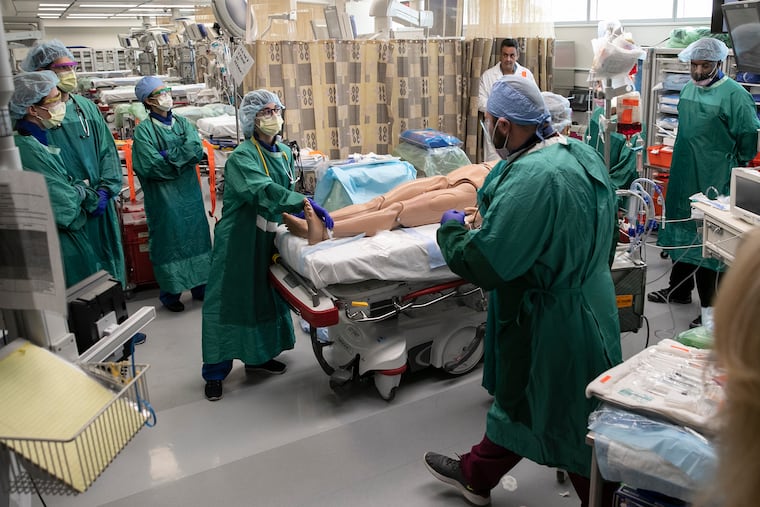Not teaching doctors about gun violence and climate change should worry all Americans l Opinion
We need more gun control and climate change activists, and medical schools are precisely the right place to produce them.

In an op-ed published in the Wall Street Journal, Dr. Stanley Goldfarb, a former associate dean at the University of Pennsylvania medical school, argues that teaching medical students about gun violence, climate change, and other “social” issues “is coming at the expense of rigorous training in medical science. The prospect of this ‘new,’ politicized medical education should worry all Americans.” (The article, and a follow up editorial by the WSJ editorial board agreeing with him, are behind the publication’s paywall, requiring a subscription or purchase).
Dr. Goldfarb began his argument by taking to task my employer, the Philadelphia-based American College of Physicians (ACP), for proposing solutions to gun violence, saying that “The American College of Physicians says its mission is to promote the ‘quality and effectiveness of health care, but it’s stepped out of its lane recently with sweeping statements on gun control.” (The National Rifle Association, in response to an ACP paper on reducing gun violence, similarly argued last November that physicians should “stay in their lane.” I co-authored that paper with my colleague Renee Butkus, and I head up ACP’s advocacy arm in Washington, DC.)
His argument isn’t just that teaching medical students about such things will come at the expense of mastering more “crucial” basic medical science. He also sees it driven by an ideological and political agenda he evidently doesn’t share. “If this country needs more gun control and climate change activists, medical schools are not the right place to produce them” he concludes.
If Dr. Goldfarb wanted to generate controversy, he surely succeeded. Many physicians and medical students weighed in on Twitter to take issue with his views. Several of his academic colleagues at Penn wrote in the Inquirer that “social justice is the foundation of medical care—and medical education.” “As educators” they continued “it is our mandate to prepare the next generation of doctors, practitioners, and scientists for the complex health and social challenges they will encounter at work every day. The social complexities will not go away if we ignore them in our curricula.”
Medical students at Penn also weighed in on Medium.com: “The walls of our medical school display a quote from Dr. William Osler, often referred to as the father of modern medicine: ‘The good physician treats the disease; the great physician treats the patient who has the disease.’ As future physicians, we are honored to care for patients with medical and social needs, and appreciate that our curriculum prepares us for this responsibility. Learning to address health disparities enriches our scientific education and is precisely the ‘rigorous classroom instruction’ Dr. Goldfarb desires.
ACP’s President Dr. Robert McLean also responded in a letter to the editor published by the Wall Street Journal: “My care for my patients and their health extends outside of my exam room. Public-health issues and how they directly impact our patients is part of my role as an internal-medicine specialist…Medical education must train future physicians on these types of public-health issues, as they represent the reality of the world in which they will practice.”
There is not much I can add to what Dr. McLean, and Dr. Goldfarb’s own colleagues and medical students at Penn, have to say, because they have expressed so well why it’s important that the healing profession be educated about the conditions—like gun violence, climate change, poverty, and poor nutrition—contributing to the diseases they aim to heal. Except this: I know from my work in health care policy that the United States is facing an epidemic of gun violence that is unique to this country, that climate change poses a grave threat to human health, and that longevity in the United States is declining in large part due to the very social conditions that Dr. Goldfarb says are outside of physicians’ lanes.
Dr. Goldfarb has it wrong. Not teaching medical students about such social issues, and not advocating to change them, is what should worry all Americans. We need more gun control and climate change activists, and medical schools are precisely the right place to produce them—along with teaching them basic science. Good programs, like that at Penn, are teaching both, and for that we should be thankful.
Robert Doherty is senior vice president of governmental affairs and public policy for the American College of Physicians, the largest physician specialty society and second-largest medical organization in the United States, and also a member of the Inquirer’s Health Advisory Panel.